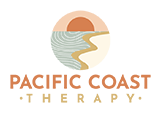Nearly one in every nine women suffers from postpartum depression following the birth of a child. You may have heard the term “baby blues”, which some people consider to be synonymous with postpartum depression.
Some symptoms to look out for that are consistent with baby blues include:
-
Mood swings
-
Feeling sad, anxious, or overwhelmed
-
Having crying spells
-
Losing your appetite
-
Having trouble sleeping
These symptoms typically develop in the days after childbirth and usually go away in 3 to 5 days after they start. The symptoms of postpartum depression last longer and are more severe. Postpartum depression usually begins within the first month after childbirth, but it can begin during pregnancy or for up to a year after birth.
Postpartum depression may be diagnosed after symptoms have developed, remained consistent, and/or worsened for a period of two weeks or longer.
Some symptoms consistent with postpartum depression include but are not limited to:
-
Feeling empty, sad, numb, or overwhelmed
-
Feeling irritable or rageful
-
Crying for no apparent reason
-
Having difficulty with memory and concentration
-
Having difficulty making decisions
-
Not enjoying activities you once enjoyed
-
Withdrawing from family and friends
-
Physical symptoms like frequent headaches, nausea, stomach pain, and/or backaches
-
Difficulty working or getting things done at home
-
Extreme difficulty or inability to care for yourself or your baby (e.g., eating, sleeping, bathing)
-
Thoughts about hurting yourself or your baby
If you are experiencing some, many, or all of the above-mentioned symptoms, you likely are experiencing some form of postpartum depression. Being a new parent is very demanding, and we understand that you are doing the best you can. If you haven’t already, consider some of these things to address your postpartum depression.
Avoid scary things.
Many people regularly enjoy watching doctor dramas, horror movies, or true crime documentaries. When you are experiencing symptoms of postpartum depression, sometimes your brain can become more suggestible or vulnerable to intrusive thoughts. This may cause distress if you are unable to get rid of an image or thought that pops up while watching these otherwise entertaining types of media.
Don’t overbook yourself.
In the days, weeks, and months following the birth of a new baby, many family and friends are eager to get together and meet the babe. This may be welcomed by many new parents, but can very easily become overwhelming when you are not doing well mentally. Be honest with your loved ones. If you aren’t feeling up to a meeting out in the community and you feel comfortable inviting people into your home, offer that alternative. If you are not feeling up to a meeting at all, make that clear. With the technology we have today, sending photos and videos of your baby to loved ones is easier than ever.
Challenge your negative thoughts.
Postpartum depression can often fill your brain with intrusive, negative thoughts that significantly impact your emotions and behaviors. Some common examples may include, “I’m not good at being a parent”, “This will never get easier”, “I can’t do this”, and “Nobody understands what I’m going through”. Thoughts like this may cause feelings of hopelessness, worthlessness, and even suicidal ideation. If you notice yourself having these thoughts, take a moment to breathe and try to challenge them by finding evidence to disprove them. What little victory can you celebrate today and every day? Even though it feels like you can’t do this, you still are. What does that say about your resilience and ability to succeed in the face of adversity?
Seek professional support.
If all your usual self-care activities are not providing the relief and support you need, it may be time to consider professional help from a therapist or psychiatrist. Talk therapy, medication management, or both have all been proven effective in supporting postpartum depression. The longer you wait while enduring your symptoms, the harder it may be to recover from them.
Lets Connect





